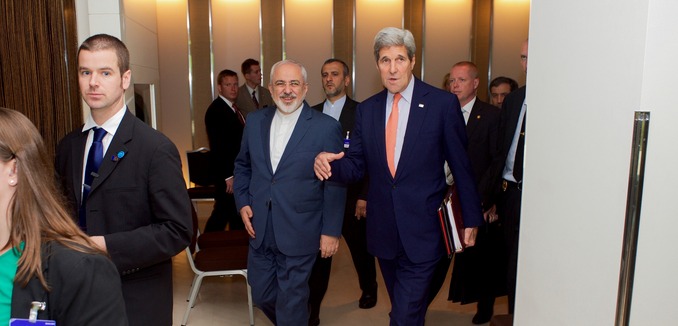The Obama administration’s outreach to repressive regimes in Myanmar, Cuba, and Iran, rather than having a moderating influence, has instead allowed them to “entrench their authoritarian systems for the long term, while screening out any liberalizing influence,” Jackson Diehl, the deputy editorial page editor of The Washington Post, wrote in an op-ed published Monday.
It nevertheless is becoming clear that the regimes on which Obama has lavished attention have greeted his overtures with a counter-strategy. It’s possible, they calculate, to use the economic benefits of better relations to entrench their authoritarian systems for the long term, while screening out any liberalizing influence. Rather than being subverted by U.S. dollars, they would be saved by them.
Diehl observed that in Myanmar, also known as Burma, the nation’s military rulers have allowed some electoral reforms, but ensured that their party will ultimately keep at least a quarter of the seats in parliament and that Aung San Suu Kyi, the leading opposition figure and Nobel Peace Prize winner, will not become president. Worse yet, in Cuba, the lifting of a travel ban that has led to “billions in fresh hard currency … flowing into the regime’s nearly empty treasury,” has been answered by “[stepped] up repression of the opposition.”
Diehl also highlighted how the nuclear deal with Iran similarly failed to moderate the Islamic Republic.
That Iran’s supreme leader is pursuing a similar course became clear in recent days as the arrests of two businessmen with U.S. citizenship or residency came to light. Having allowed reformist president Hassan Rouhani to negotiate the nuclear deal with Obama, Ayatollah Ali Khamenei and the Revolutionary Guard intend to pocket the $100 billion or so in proceeds while forcibly preventing what they call the “penetration” of Western influence that Obama hopes for.
Hence the taking of more U.S. hostages. To the imprisonment of The Post’s Jason Rezaian and two other Iranian Americans, add Nizar Zakka, a U.S.-based Internet specialist, and Siamak Namazi, an Iranian American who has publicly advocated for better relations between the countries. The lack of any U.S. response means that the open season on Americans will continue in Tehran.
Diehl’s column concluded by observing, “So the message is: It’s okay to capture U.S. dollars while excluding U.S. business and cracking down on anyone favoring liberalization. No wonder the dictators are winning.” It followed an unsigned editorial in the Post on Friday calling for Iran to release American hostages or face renewed sanctions.
President Obama has frequently suggested that the nuclear deal would prompt a relaxation of barriers between Iran and the West. So far, the opposite appears to be happening. While anticipating the collection of up to $100 billion in frozen assets, Iran’s military and security services are acting to ensure that there is no further detente. In that they have the support of Supreme Leader Ayatollah Ali Khamenei, who on Tuesday celebrated the anniversary of the seizing of hostages at the U.S. Embassy by proclaiming that the slogan “death to America” will live forever.
The Obama administration has reacted to these provocations, including the new arrests, with the equivalent of a shrug. When asked about them, a State Department spokeswoman said, “This is something that we continue to have dialogue on.” Republicans, including House Foreign Relations Committee Chairman Edward R. Royce (Calif.), have proposed imposing new sanctions on the IRGC. If the Americans are not soon released, that would be a logical course.
The strengthening of Iran’s Islamic Revolutionary Guard Corps as a result of the nuclear deal was an outcome that was predicted by experts. The Post, in editorials published before and after the agreement was reached, argued that given the arbitrary nature of the arrest and prosecution of its reporter, Jason Rezaian, any westerners seeking to do business in Iran would be at significant risk.
[Photo: U.S. Department of State / Flickr ]




